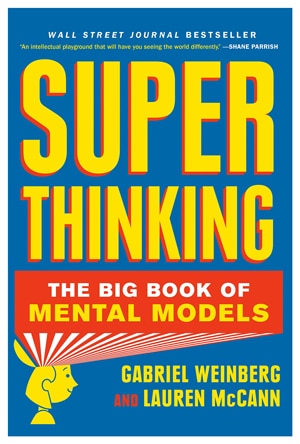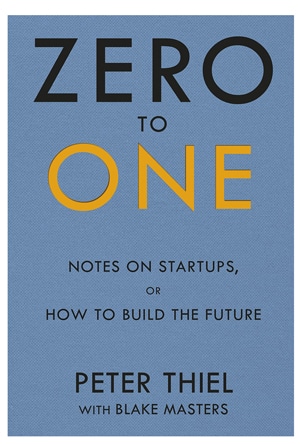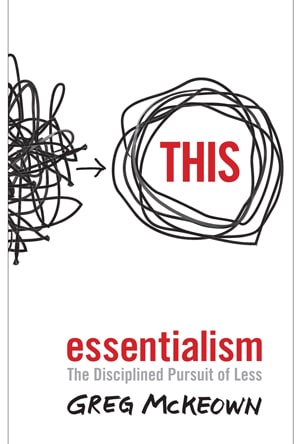The Ultimate Guide to Coach
Speakers
About The Author
Siddharth Rajsekar
Founder - Internet Lifestyle Hub
Siddharth Rajsekar aka Sidz is the founder of the Internet Lifestyle Hub, one of the world’s largest communities for coaches, trainers, teachers, and experts with over 20,000 members.
As an acclaimed lifestyle entrepreneur, Business World's 40 under 40 award winner, and international speaker, Siddharth has trained over 500,000 people in the last 10 years. Recognized as one of India’s leading and sought-after “info-marketing” specialists, Siddharth has worked closely with renowned International experts like Robert Kiyosaki, T Harv Eker, Tony Robbins, Brian Tracy, and Jack Canfield.
After running many multi-million-dollar online campaigns for companies and helping people make money online in the last 10 years, Siddharth has developed and perfected the Freedom Business Model. The Freedom Business Model focuses on helping people take their expertise online and building a super-profitable digital coaching business, without an office or employees.

His mission is to reform the education and employment system by building a new breed of Digital Leaders, based on the core principles of humanity and simplicity and by enhancing one’s social skills, happiness, and overall productivity.
He is the author of this book, “You Can Coach” which decodes all the steps for experts to successfully PLAN, LAUNCH, and GROW a digital coaching business to six figures a month. Wearing multiple hats, Siddharth is a husband of a loving wife, a father of 2 boys, a minimalist, futurist, spiritualist, a YouTuber who has published over 300 videos, as well as a podcast host!
1. Do You Have What It Takes To Coach Speakers?
The ability to speak well is a valuable asset that can have huge benefits in many areas of life. Whether you're a professional, speaking offline on a stage or online as a video or podcast presenter, or just someone who wants to improve their communication skills, developing the ability to speak effectively can open up a world of opportunities.
Developing the ability to speak well is a worthwhile investment that can pay off in many ways
Improve your communication skills
Build confidence
Open up new job opportunities
Improve your critical thinking
Form connections
Influence decisions
Motivate change
“How well we communicate is not determined by how well we say things, but how well we are understood.”
Without these skills, the ability to progress in the working world and in life itself would be nearly impossible.

Improve Communication
One of the most obvious benefits of speaking well is improved communication. When you can express your thoughts clearly and effectively, you can share your ideas and connect with others. This is valuable in professional settings, where effective communication is essential for building relationships, negotiating deals, and achieving business goals.
Increased Confidence
Another benefit of speaking well is increased confidence. When you know how to speak clearly and confidently, you can assert yourself and make your voice heard. This is valuable in personal and social situations, where self-confidence can be a major asset in making new friends and building relationships.
Better Job Opportunities
In many professions, effective communication skills are essential for success. Whether you are working in sales, marketing, management, or any other field, the ability to speak well can help you stand out from the competition and open up new job opportunities. Employers are often looking for candidates who can communicate effectively with colleagues, customers, and stakeholders, and the ability to speak well can be a major advantage in this regard.
Any profession that involves communicating with others can benefit from improved speaking skills.
In an interview, Jack Canfield shared these ideas
These are the reasons to write a book:
Business Professionals
Good speaking skills are essential for business professionals, as effective communication is crucial to maintaining successful relationships with clients and colleagues. Improved speaking skills can help business professionals make presentations, negotiate deals, and persuade others.
As a coach, you can provide them with guidance and support throughout the process of starting and growing a business. Practical advice, tips, and tricks can give a newcomer a jumpstart.
Coaching is about more than just answering questions - it's about helping your students reach their full potential by providing them with tools and resources that will allow them to do so. What seasoned coaches do comes naturally to them, it’s a lot like breathing underwater. It runs smoothly because they know how to breathe properly. To be a coach for communicators, you need a combination of skills, knowledge, and experience.
Here are some things that are typically required to be an effective coach
Coaching Skills: You should be able to ask powerful questions, listen actively, and provide feedback in a way that helps speakers develop their skills and achieve their goals. You have to come from a place of service. Your clients shouldn’t have to wonder, "Are you in this for yourself?" "Or are you in this for me?
Empaty & Emotional Intelligence:
You should be able to empathize with your students and understand the emotional challenges they face when starting and running a business.
One of the most important qualities of a coach is empathy and understanding. As a coach, you should learn how to walk people through a sequence that includes getting in touch with their life purpose. The coach should be able to put themselves in their client's shoes and understand their struggles, fears, and aspirations. A good coach will take them through the sequence of clarifying their life purpose, creating a vision that's aligned with fulfilling that purpose, setting specific goals, and learning about affirmations and visualization. They should be able to provide a safe space for all aspiring speakers to share their work and ideas without fear of judgment or criticism
Experience As A Communicator: Ideally, you should have experience as an online or offline speaker, as this will give you firsthand knowledge of the challenges and opportunities that need to be faced. Most people are afraid of rejection, so they don't ask for what they need. That's a very important thing, to figure out and work through, but we all have to start somewhere, and you're not going to be perfect when you start.
Walk The Talk:
You don’t have to be a TV host yourself to become a coach. If you have successfully understood the principles that you are teaching, you are allowed to talk with authority about them. You have to be living the truth that you are coaching about. So if you're teaching people, they need to be 100 percent responsible for their lives. Not blame, not complain, not make excuses. Another part of the formula is to gain mastery over copywriting. You must be living that because your vibration, your truth, will be transmitted to others as you speak. If you're just teaching something you read about in a book, that comes through to people. They can tell that.
Knowledge Of The Industry:
Depending on the type of speakers you work with, you may need specialized knowledge of the industry they operate in. If you know the combination of a lock, it doesn't matter if you're young or old, went to university, or did not. The lock has to be opened with a set of numbers, and if you do them the right way, in the right order, and at the right time, you can unlock this thing called success.
Continuous Learning:
As a coach, you should be committed to continuous learning and development. This will enable you to stay up-to-date with the latest trends and best practices in coaching and business. You should be learning as you're teaching, and also living, as much as possible, with that integrity. People can pick up someone who's not real. Tony Robbins, the life and business strategist, advises CANI - constant and never-ending improvement. Constantly watch YouTube videos, TED talks, and read books.
Communication Skills:
Effective communication is essential for a coach to be able to convey their ideas and feedback to their clients. Be articulate, and learn how to communicate your concepts in a way that resonates with your students. You should be able to take complex ideas and explain them in a very easy-to-understand way using metaphors and stories. A coach should be able to provide constructive criticism in a way that is clear, respectful, and actionable. They should also be able to listen actively to their client's concerns and questions and provide relevant answers and guidance.
Positive Attitude And Motivation:
A coach should have a positive attitude and be able to motivate their clients to overcome obstacles and reach their goals. They should be able to provide encouragement, praise, and support that can boost their clients' confidence and inspire them to keep writing. A coach who can create a positive and motivating environment can help aspiring speakers stay motivated and on track. When you're having failures, when the world's not responding as fast as you'd like to, to all the things you're trying to either do, market, or accomplish in the world, how do you keep yourself in action? That's the bigger question. How do you stay motivated when you have setbacks?
"Every master was once a disaster"
- Alex Mendoza
Overall, coaching speakers requires a unique set of skills and experiences. By combining business expertise, coaching skills, empathy, and continuous learning, you can help your clients achieve their goals and build successful businesses.
To be a speaker's coach, it is important to have the right mindset to maximize your effectiveness. Aspiring speakers will want to know that you really care about them and that you're there to support them in being successful.
Be patient with your students- they're going through a lot of changes
Give constructive criticism when needed; every little bit helps.
Stay positive about their journey; it's not always easy, but they can do it.
A typical experience knowledge giver, or coach, is an experienced and skilled professional who takes on the task of giving experience to others. People who choose knowledge-giving tend to have been successful in some other line of work before turning to coaching as a profession. They can gain satisfaction knowing that these experiences serve another purpose
We could all use some tips on how to grow our businesses, improve relationships, and maintain a passion for life and living.
Knowledge sharing is the process by which knowledge is shared with someone else. This knowledge sharing used to happen only in person but is now freely available online. It can be on such a diverse range of subjects as wellness, painting, strength training, or accounting.
As a knowledge provider, you will help others by providing them with advice on how they can fulfill their dreams and achieve their goals. You will offer knowledge that is helpful to them because it has worked for you or other people you know. It goes without saying that to be successful as a knowledge provider, you need to have expert-level knowledge on your topic, either through academics or through a sheer wealth of experience.
By sharing their knowledge and expertise, they can positively impact and influence the lives of others, helping those people get closer to fulfilling their dreams. In the conventional scenario, a coach is a person with skills and experience who helps to teach or develop those same skills in others.
Coaches work with their clients to improve their performance in a specific area. The focus is on helping the client learn; not merely teaching them. A coach can specialize in anything from life to career coaching or in more niche areas such as day trading, photography, insurance, or graphic design. Some coaching types require experience and credentials, while others can be built up with creativity and good people skills.
Online video or podcast presenters need to speak well because their success depends mainly on how well they can communicate with their audience. Here are some reasons why talking well is important for online presenters:
Engagement: Speaking well helps presenters engage their audience by making their content more interesting and compelling. A presenter who speaks articulately, and with enthusiasm can capture the attention of their audience and keep them engaged throughout the video or podcast.
Credibility: Speaking well also helps presenters establish credibility with their audience. A presenter who speaks confidently and knowledgeably about their subject matter can build trust with their audience, making it more likely that they will return for future videos or podcasts.
Branding: For online video or podcast presenters who are building a personal brand, speaking well is essential. A presenter's communication style can be a key component of their brand, and a presenter who speaks well can differentiate themselves from others and build a following.
Accessibility: Clear and effective communication is essential for ensuring that the presenter's message is accessible to as many people as possible. A presenter who speaks clearly and concisely can make their content more accessible to people with different language backgrounds or hearing impairments.
To communicate well, speakers need coaches to guide them and bring out the best in them.
Public speaking is a common fear that affects people from all walks of life. Whether it's giving a presentation in front of coworkers or delivering a speech at a family gathering, the thought of speaking in front of a group can be intimidating and nerve-wracking. There are many reasons why people fear speaking in public and understanding these reasons can help individuals overcome their anxiety and improve their communication skills.
Fear of judgment or criticism
Many individuals worry about what others will think of them and fear that they will make a mistake or be judged negatively. This fear can be amplified by a lack of confidence in one's speaking abilities, which may stem from a lack of experience or a lack of preparation. In many cases, individuals may also compare themselves to other successful public speakers, leading to feelings of inadequacy and self-doubt.
Fear of failure
Many people worry that they will forget their lines or stumble over their words, causing them to embarrass themselves in front of others. This fear can be especially strong for those who have experienced negative public speaking experiences in the past, such as being ridiculed or mocked by their peers. These past experiences can lead to a fear of failure that is difficult to overcome.
Social anxiety or shyness
Some may feel uncomfortable in social situations and may find it difficult to connect with others. Speaking in front of a group can increase these feelings of anxiety and make it challenging to convey their message effectively. They may worry about being the center of attention or feeling exposed, leading to feelings of discomfort and unease.
However, with a coach’s guidance, practice, preparation, and willingness to step outside of their comfort zone, people can overcome their fear of speaking and improve their communication skills.
As a coach, courage and consistency are the two things that you must teach at a core level for your students to be able to communicate effectively. You have a special chance to assist people in overcoming their fear of public speaking and acquiring the abilities they need to speak confidently and effectively
It’s not about showcasing yourself. The point is to keep it simple and have clear communication.
Public speaking is a common fear that affects people from all walks of life. Whether it's giving a presentation in front of coworkers or delivering a speech at a family gathering, the thought of speaking in front of a group can be intimidating and nerve-wracking. There are many reasons why people fear speaking in public and understanding these reasons can help individuals overcome their anxiety and improve their communication skills.
Develop Communication Skills:
A coach can help speakers improve their communication skills, including body language, voice modulation, and tone. This can help them become more confident and effective communicators.
Overcome Nervousness: Many people experience nervousness when speaking in public or on camera. A coach can help speakers overcome this by providing them with techniques to manage their anxiety and build their confidence.
Enhance Content:
A coach can provide feedback on the speaker's content and help them refine their message. This can help speakers communicate their ideas more effectively and engage their audience better.
Gain New Perspectives:
A coach can provide new perspectives on the speaker's delivery and content, helping them identify blind spots and areas for improvement.
Stay Accountable:
A coach can help speakers stay accountable to their goals and commitments. This can help them stay motivated and make progress toward their speaking goals.
Understanding your client's goals and challenges:
Before you can begin coaching someone on their public speaking skills, it's important to understand what they hope to achieve and what challenges they currently face. This might involve asking questions about their past public speaking experiences, their level of confidence, and the specific context in which they'll be speaking.
Developing a customized coaching plan:
Based on your client's goals and challenges, you can create a personalized coaching plan that addresses their specific needs. This might include working on specific skills like vocal projection, body language, or storytelling techniques.
Practicing with realistic scenarios:
One of the most effective ways to help someone improve their public speaking skills is to provide opportunities for them to practice in realistic scenarios. This might involve creating mock presentations or speeches or providing feedback on real-world speaking engagements.
Building confidence:
For many people, fear and anxiety can be major barriers to effective public speaking. As a coach, you can help your clients build confidence by providing positive reinforcement, helping them develop strategies for managing anxiety, and celebrating their successes along the way.
Providing ongoing support: Even after your client has completed their coaching program, it's important to continue providing support and encouragement. This might involve checking in with them periodically to see how their public speaking skills are progressing or providing additional coaching sessions as needed.
By following these key principles for coaching public speakers, you can help your clients develop the skills and confidence they need to become effective communicators in any setting. With the right coaching and support, anyone can become a confident and compelling public speaker.
2. Creating A Curriculum
Today, we’re living in a world where people can Google whatever they wish, and they get thousands of options. Today, people do not lack information. They can spend hours and hours researching on YouTube without finding a solution to their problem.
What people want is a clear-cut path to achieving their goals, and they want it fast. What people will pay you for is not the volume of information, but how simple you can make it for them. How fast can you get them a result?
Before deciding to take action and achieve results, the student must first develop the proper mindset, and to do so, the roadblocks that are holding them back must be removed. This is a list of books that you should recommend to your students.

1. Thou Shall Prosper
Ten Commandments for Making Money-by Daniel Lapin. Principles on which Jewish people build wealth while debunking the myths about their reputation. The true principles of wealth creation show that creating true wealth is a spiritual activity if you do it with the right mindset and perspective.

2. Becoming Supernatural
How Common People Are Doing the Uncommon-by Joe Dispenza. Tracking brain frequency and how you can change your life through spirituality. Understanding the link between spirituality and science

3. Think Simple
How Smart Leaders Defeat Complexity-by Ken Segall. How Steve Jobs used product design, simplicity, consumer experience.

4. The 80/20 Principle by Richard Koch
Pareto's principle is evaluated as per the 80/20 rule. How 20% of your efforts can reap 80% of your results.

5. Hackers and Painters by Paul Graham
Abstract thinking and coding to do things beyond boundaries. By thinking outside the box, you can bend and break the rules.

6. Super Thinking
Upgrade Your Reasoning and Make Better Decisions with Mental Models -by Gabriel Weinberg. mental models to think out of the box and better decisions

7. The Membership Economy
Find Your Super Users, Master the Forever Transaction, and Build Recurring Revenue eBook-by Baxter, Robbie Kellman.

8. Zero to One
Notes on Start-Ups, or How to Build the Future -by Peter Thiel. How to dominate your market with amazing ideas. How to build reachability, and achieve phenomenal growth over the long term to reach out to a large number of people.

9. Atomic Habits
An Easy and Proven Way to Build Good Habits and Break Bad Ones -by James Clear. Focus and discipline make all the difference

10. Influence, New and Expanded
The Psychology of Persuasion, -by Robert B. Cialdini. Sales, and psychology of conversion. Persuasion, sales, and buying triggers.

11. Lead the Field by Earl Nightingale
Your market/niche/space and how to position yourself. Leadership and building community for revolutions and movements

12. Essentialism
The Disciplined Pursuit of Less -by Greg McKeown. Simple living and high thinking. Have less but have the best and you will be free
When you incorporate success stories into your curriculum, they will create mind shifts for the new people who are joining your student community. They should feel like, "Wow, if this person can do it, I can do it.” That shift is what you must install at the start of your course.
When you’re designing a program or a course for speakers, you need to bring your personality into that. When your teaching reflects your personality, people will connect with you.
When people realize that you're not there solely for your profits but for their benefit, that’s when the needle will move on your revenues.
Every part of your curriculum should be a reflection of you. Once more, they get the experience of saying, “Wow, I’m at the right place at the right time.” This is the best customer experience you can hope for. The quality of your product is not what you think of as quality; it happens when your customer feels that they are getting the best value for the money that they’ve invested and they’re able to get the information in a remarkably simple, smooth, and sublime way. When you do this, you don’t have to “market” quality; quality speaks for itself.
This is best seen in Gary V’s book called Jab Jab, Right. The reality is that you must first provide value, then sell. Give value, give value, and then you enroll. A lot of people don't know that, and they're not using social media correctly. When you build a following, you'll have that distinct differentiation, and you can even write a book about it. A lot of people think that they have nothing new to say because everything's been said, but that's not true. Your experience has not been described, which is a good reason to write.
Find role models when you’re designing programs. Only by modeling yourself after some phenomenally successful people in the market will you be able to apply those lessons to your unique flavor.
This will help you deliver immense value to your students. The secret to winning this game is to have the best people in this industry on your radar and model them. Model them rather than simply copy them. Make a list of all the people who are influencers in your micro-niche. Search for them on Google if you don’t know anyone right now. Search for them on YouTube and Instagram, or even a few podcasts.
Once you’ve made a list of those names, then look at their websites. Study how they have structured their programs. Learn how they are framing themselves in their videos. If you need to invest in their programs, please go and do that. Once you invest in their programs, you’ll get a lot of ideas on precisely what they are doing to achieve that kind of success. All you must do is wear the hat of a researcher. Make a list of all the points that make their business work and start modeling them. You can then start applying your touch to that same model, and you’ll start to see results faster than you can ever imagine.
"Design is not just what it looks like and feels like. Design is how it works."
- Steve Jobs
Just go and analyze all of them. If you must spend a whole week doing this, just do it. So, the fastest part of your goal is to find the best and start modeling them.
The sad truth is that a lot of coaches, trainers, and teachers are so convinced they know it all that they are not willing to listen to what the students want. When you can flip the switch within your head, you can start to build better curriculums that are precise and that will create better results when it comes to solving their problems. You may have an ocean of content in your head, but people don’t care about it.
“Don’t try to be original; just try to be good.”
- Paul Rand
For example, you give somebody Google Maps and ask them to learn Google Maps. It’s going to be tough. How can they memorize the location of each place and intersection? All you must do is send them there to understand where they want to go and give them a clear path from point A to point B.
They don’t need to know everything; they just need to get to their destination. It’s as simple as that. It is not about the content; it is about delivering results.
People Who Pay Money, Pay Attention
Russell Brunson experimented and gave away some courses for free to a group of people. When he went to the back-end dashboard to see how many of them finished the course, it was a ridiculously small percentage. On the other hand, he looked at the statistics of the people who paid money and was blown away. For people who had paid money and come into my system, the completion rate was much higher when compared to people who just got in for free. People who spend money pay more attention. People who pay attention act, and people who act get results. So, it’s your moral responsibility as a writing coach to charge people money for your courses; only then will they value your information. Only when there’s a value exchange will people value your knowledge. So, by giving everything away for free, you’re doing a disservice to the marketplace.
“When you share your knowledge based on your own experience, it will have true power.”
- Sidz
As a coach for speakers, when trying to design a curriculum, keep in mind that these people are not checking out how much knowledge you have. They're only looking for results, which you get for them. The best way a coach for speakers can show that he cares about his students' success is by being genuinely invested in their growth and development. This can involve taking the time to understand their unique strengths, weaknesses, and goals, and tailoring the coaching approach to meet their specific needs. how to develop a curriculum
Ultimately, a coach who shows that he cares about his student's success will be committed to helping them achieve their speaking goals and will be there to celebrate their successes along the way.
Top habits to develop for effective speaking:
Groom yourself.
Dress nicely.
Photoshop your self-image.
Think positively.
Kill negative thoughts.
Get to know yourself.
Act positively.
Be kind and generous.
Be prepared.
Know your principles and live them.
Speak slowly.
Stand tall.
Increase competence.
Set a small goal and achieve it.
Change a small habit.
Focus on solutions.
Smile.
Empower yourself with knowledge.
Teach your students how to gain eloquence and flow in communication
You need to be a good listener. You can’t be a good speaker without being a good listener. You have two ears and one mouth. Use it in that proportion.
To be a good communicator, you need words.

Broaden your mind. Consume more audiobooks, and podcasts, consume a lot of information, and document the notes. Put the information into mind maps. Based on the information, keep building formulas.

Observe and assimilate from your mentor or role models. Model yourself on experts and influencers you admire. Learn effective hooks and punchlines, ways to deliver, and voice modulation.

Write more to gain eloquence in your speech. Some of the best marketers in the world are great copywriters.

Maintain a scrapbook of catchy headlines. Powerful words stir emotions. Save attractive ads to show the way in writing better every day.

Start sharing the knowledge by expressing it in your own words in the form of video and audio content.
















